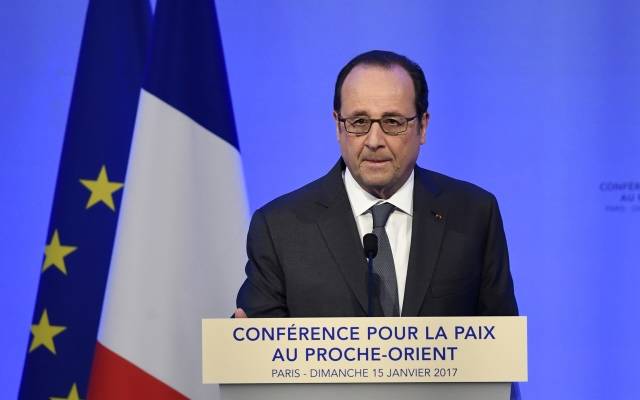The premise of the Paris conference contradicts a ruling by France’s highest court.
The premise of the recent Paris conference to advance peace talks between Israel and the Palestinians was undermined by a 2013 French court ruling on the legality of Israeli presence in Judea and Samaria, the editors of The Wall Street Journal wrote Thursday.
While the Paris conference convened to “once more depict Israeli settlements as a grave violation of international law,” the editors asserted that this position was contradicted by the finding of the French Court of Appeals in Versailles in 2013.
According to that ruling, “contrary to Palestinian arguments, Jewish settlements don’t violate the Geneva Conventions’ prohibition against an occupying power transferring ‘its civilian population into the territory it occupies.’ The law, the court held, bars government efforts to transfer populations. But it doesn’t bar private individuals settling in the disputed territories.”
A lower court had ruled against Palestinian activists who sued a French company for its role in building Jerusalem’s light-rail system, which extends through both eastern and western parts of the city. The Versailles court upheld the lower court’s ruling and the case went no further.
“That matters because the Paris conference adopted the premise that settlements are illegal as a matter of settled law and the primary obstacle to peace,” the editors observed. “The French court makes a nonsense of that judgment simply by looking at what the Geneva Conventions say, rather than basing its judgment on a legally meaningless ‘international consensus.’”
The Paris conference took place following the passage of United Nations Security Council (UNSC) resolution 2334 last month, which declared that Israeli presence in eastern Jerusalem, Judea and Samaria, including the Old City of Jerusalem, is in “flagrant violation of international law.”
Subsequent to the passage of the resolution, Fox News reported that the Security Council was preparing a database of businesses with commercial activities in eastern Jerusalem and the West Bank, which could be used to create a blacklist.
Efforts to single out Israel for boycotts may also put the Security Council in violation of a ruling by the Paris-based Court of Cassation, France’s highest court, which ruled in November 2015 that efforts to target Israelis for discriminatory treatment are an illegal form of hate speech.
By: The Tower
